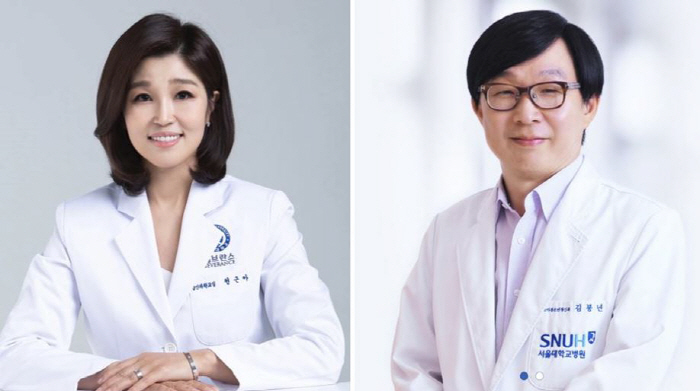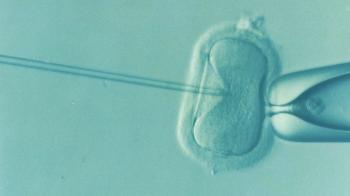Yonsei University and Seoul National University Consortium Starts Developing Autism Screening AI Medical Devices
May 15, 2025
Yonsei University's Industry-Academic Cooperation Group and Seoul National University's Industry-Academic Cooperation Group's consortium will launch the 「'Advanced BioHealth Big Data with Autism Spectrum Disorders and Develop Digital Medical Devices" project organized by the National Mental Health Center of the Ministry of Health and Welfare. About 9.2 billion won will be spent on the project.
The consortium is co-organized by Professor Chun Geun-ah of Pediatric Psychiatry at Yonsei University Severance Hospital and Professor Kim Bung-nyeon of Pediatric Youth Psychiatry at Seoul National University Hospital, and major domestic medical institutions such as Gangnam Severance Hospital, Gangnam Cha Hospital, Ewha University Seoul Hospital, Ewha Mokdong Hospital, Hanyang University Hospital, Wonkwang University Hospital, and Seoul St. Mary's Hospital will participate. To develop AI-based digital medical devices, technical institutions such as Yonsei University's Medical Life System Information Class, School of Neurosurgery, Korea Institute of Science and Technology (KIST), Urban Data Lab, Hewray Positive, Evertrai, Baikal AI, Eco Insight, and A-Dot Cure will also cooperate.
This project aims to develop digital medical devices that support treatment by early screening high-risk groups for autism developmental disorders and predicting their progress by 2028. To this end, it plans to establish a new cohort of 1,200 infants under 48 months old and develop medical devices based on the collected data to promote the designation of innovative medical devices by the Ministry of Food and Drug Safety.
Currently, the diagnosis of autism spectrum disorder is limited in terms of objectivity and consistency as it relies heavily on the clinical findings of specialists and subjective observations of guardians. It improves the efficiency of screening for autism spectrum disorder by detecting early signals in children's daily lives with digital technology and reflecting them in the screening process.
Professor Geun-ah Chun, director of the research, said "The artificial intelligence-based autism spectrum disorder screening assistance medical device to be developed through this project will serve as an opportunity to change the paradigm of early diagnosis and treatment of autism."
Professor Kim Boong-nyeon said "The consortium will lay the groundwork for overcoming the limitations of diagnosis of autism spectrum disorder and leading to better treatment outcomes." he said.
The consortium is co-organized by Professor Chun Geun-ah of Pediatric Psychiatry at Yonsei University Severance Hospital and Professor Kim Bung-nyeon of Pediatric Youth Psychiatry at Seoul National University Hospital, and major domestic medical institutions such as Gangnam Severance Hospital, Gangnam Cha Hospital, Ewha University Seoul Hospital, Ewha Mokdong Hospital, Hanyang University Hospital, Wonkwang University Hospital, and Seoul St. Mary's Hospital will participate. To develop AI-based digital medical devices, technical institutions such as Yonsei University's Medical Life System Information Class, School of Neurosurgery, Korea Institute of Science and Technology (KIST), Urban Data Lab, Hewray Positive, Evertrai, Baikal AI, Eco Insight, and A-Dot Cure will also cooperate.
This project aims to develop digital medical devices that support treatment by early screening high-risk groups for autism developmental disorders and predicting their progress by 2028. To this end, it plans to establish a new cohort of 1,200 infants under 48 months old and develop medical devices based on the collected data to promote the designation of innovative medical devices by the Ministry of Food and Drug Safety.
Currently, the diagnosis of autism spectrum disorder is limited in terms of objectivity and consistency as it relies heavily on the clinical findings of specialists and subjective observations of guardians. It improves the efficiency of screening for autism spectrum disorder by detecting early signals in children's daily lives with digital technology and reflecting them in the screening process.
Professor Geun-ah Chun, director of the research, said "The artificial intelligence-based autism spectrum disorder screening assistance medical device to be developed through this project will serve as an opportunity to change the paradigm of early diagnosis and treatment of autism."
Professor Kim Boong-nyeon said "The consortium will lay the groundwork for overcoming the limitations of diagnosis of autism spectrum disorder and leading to better treatment outcomes." he said.
|
This article was translated by Naver AI translator.














